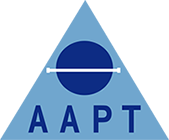News
Modernising Scientific Careers: latest update
This update on Modernising Scientific Careers is taken from the Chief Scientific Officer's November bulletin.
This update on Modernising Scientific Careers is taken from the Chief Scientific Officer's November bulletin.
The UK-wide Modernising Scientific Careers (MSC) policy 2009 funding round document is currently being finalised and is expected to be published by the end of the year. Two stakeholder events held in London and Liverpool during the summer were extremely helpful in further refining specific aspects of it. Almost 200 people, representing a wide range of stakeholders including patient groups, participated in the two events.
Alongside the final policy document will be an independent analysis of the response to consultation, an England Implementation Action Plan, a financial impact assessment and an equality impact assessment.
Improving equality
"The equality impact assessment is a real opportunity to make sure that the MSC programme assists us in ensuring that we remove any barriers to accessing healthcare careers,” says CSO Professor Sue Hill.
"The MSC proposals recognised that this is vital if we are to ensure a workforce that is able to fully respond to the needs of patients in the 21st century. We have been doing some focused work with stakeholders around equality issues and will be putting in place formal arrangements to support our aims here as we implement the MSC programme."
Genetics leads the way for MSC
A pilot programme which aims to transform education and training for healthcare scientists in genetics started in October.
Hosted by NHS West Midlands and funded by the Department of Health, the programme is receiving an investment of £4.2 million to enable the NHS to respond to exciting advances in genetics which are improving the ability to predict and diagnose disease.
Based on the proposed Modernising Scientific Careers (MSC) model, the genetics pilot also serves as a testing ground for the roll-out of MSC to other healthcare science professions, and will be evaluated by the University of Warwick.
The pilot has funded and recruited 12 trainee Healthcare Science Practitioners and 12 trainee Healthcare Scientists in genetics, for two and three-year training programmes respectively. A further nine trainees have also joined the programme.
All will be based in genetics departments throughout England, and a new National School of Genetics is to be established in the West Midlands to co-ordinate training and assure quality. The programme for the Healthcare Scientists will include a new parttime masters course delivered by the University of Nottingham.
The pilot's remit includes coordinating a workforce planning review to understand future workforce needs in genetics.
CSO Professor Sue Hill says: "I am delighted that the genetics pilot is now underway. Its modernised education and training includes a strong emphasis on high quality care, encouraging innovation and improved productivity to ensure that NHS patients will benefit from leading edge developments in this fast moving field. The pilot will also be enormously helpful in planning for implementation of MSC from 2010."
